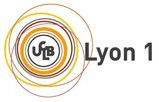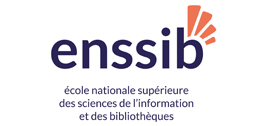Master in Science of Complex Systems

The “Complex Systems” training, with emphasis on “Physics, Computer science and Complex Networks”, is an option of Master 2 which offers specific lectures as part of the Masters of Physics or Chemistry (Sciences de la Matière / Parcours Science et Innovation) or the Master of Biology (Biosciences); the lectures are also intended and accessible for the students in the Master of Computer Science (Informatique Fondamentale). All these Masters are organised by the ENS of Lyon and University Lyon 1, and the “Complex Systems” training aims to provide an innovative teaching for students who are interested in the interdisciplinary research of complex networks and modeling of complex systems.
This program maintains a balance between different disciplines by combining courses from the fields of biology, computer science, mathematics, physics and sociology. Students from all of these disciplines are welcome to participate; the student will follow both the ”Complex Systems” program and part of their own M2: Physics or Chemistry (Sciences de la Matière), Bioscience, or Computer Science (please contact the people responsible of the programs for more details).
The inscriptions to the program has to be made by following the procedure of the ENS de Lyon webpage : Follow the online procedure for admission in Master at the ENS of Lyon (or the University of Lyon 1). For the ENS of Lyon, this is explained here in french http://www.ens-lyon.fr/formation/admission. Be attentive to the deadlines. Also, please contact Pierre Borgnat, currently in charge this part of Master, so that we are aware of the application. For the training as part of the in the Master of Physics, see also: http://www.ens-lyon.fr/MasterSDM/fr/admissions/admission-en-m2.
The program puts a special focus on the theory and modelling of complex networks and provides special training in data-driven research. In the end of the program students will receive a degree supplement assigned in their original master degree. All courses are given in English (optionally in French if all the students are fluent in French) during the fall, between September and January. For a successful validation the participating students are required to collect 30 ECTS of their Master during the first semester, and 30 ECTS for the second semester.
Each Master has a possible list of lectures (usually, at least 12 ECTS should be taken in this main Master, be it physics or chemistry, or biosciences), supplemented by the specific following offer of lectures – for students in the training on Modeling of Complex System – that cover domains of complex systems and of data processing and learning (typically 18 ECTS, so as to obtain the required total of 30 ECTS):
Mandatory courses
- Fundamentals in Computer Science (S. Thomassé) ; 18h + 8h TD; 3 ECTS (*)
- Complex Networks - Network Science (R. Cazabet, A. Guille) ; 24h + 8h TD, 5 ECTS
- Methods in Complex Systems (T. Nguyen-Huu, N. Garnier) ; 20h + 8h TD, 4 ECTS
- Research in Complex Systems (S. Franceschelli, P. Borgnat, E. Guichard) ; 18h ; 3 ECTS
(* : these lectures can not be taken by students from Computer Science Master)
Research courses
- Data analysis and processing for networks, P. Borgnat, M. Bontonou - 18h, 3 ECTS
- Machine learning, N. Pustelnik, J. Tachella, 18h, 3 ECTS,
- Modeling in biology and medicine, L. Pujo-Menjouet, B. Audit, O. Gandrillon - 18h, 3ECTS
- Modeling of Social Systems, P. Jensen - 18h, 3ECTS
- Other research lectures in Master 2 in Computer Science Master or Physics (or other Masters)
Research Internship
The students have to follow a research internship during the second semester. The specific rules depend on the Master of inscription (Physics, Bioscience or Computer Science); usually, the internship is over the whole semester, of at least 20 or 24 weeks. In Physics, it will count as 30 ECTS (validated by a written report and an oral presentation), and 24 ECTS in Bioscience.
Informations
For further details about the program please contact the people in charge:
- Pierre Borgnat, PhD (pierre.borgnat@ens-lyon.fr)
Schedule of 2022-2023
Beginning of lectures of the first semester: early September 2022. End of 1st semester: end of 1st week of January 2023. Second semester: Research internship up to mid July 2023.
See the schedule of 2022-2023 here:
Link to the schedule of the specific lectures in Complex Systems
Scholarships
ENS Lyon provides different scholarship programs for international students:
For further details please visit the site of the international student office of ENS Lyon. ERASMUS students from universities with partnership agreement with ENS Lyon are welcome.










